2-Day Unconventional Nightlife Adventure with Friends in Windhoek
Windhoek, Namibia
2 days
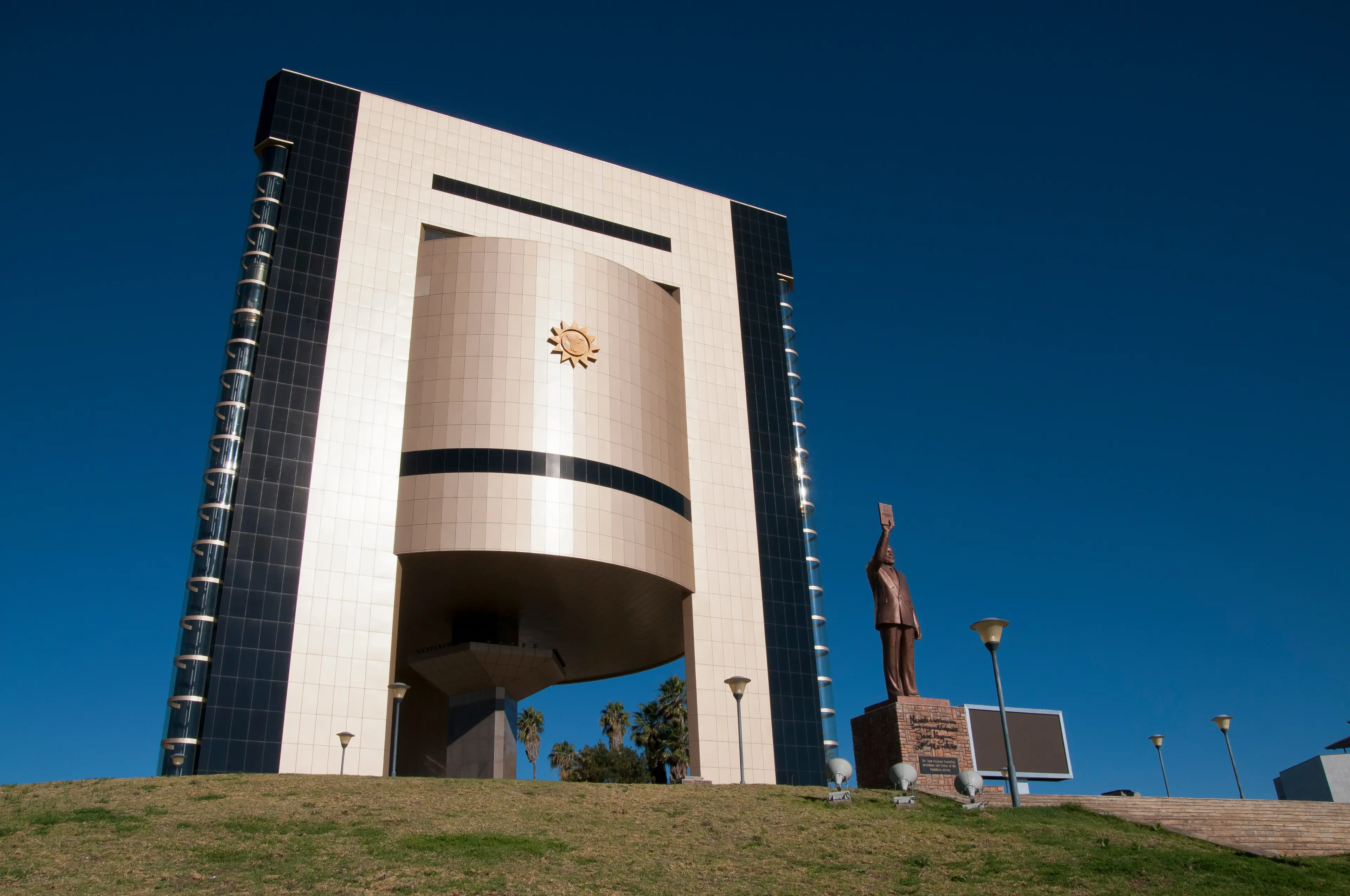
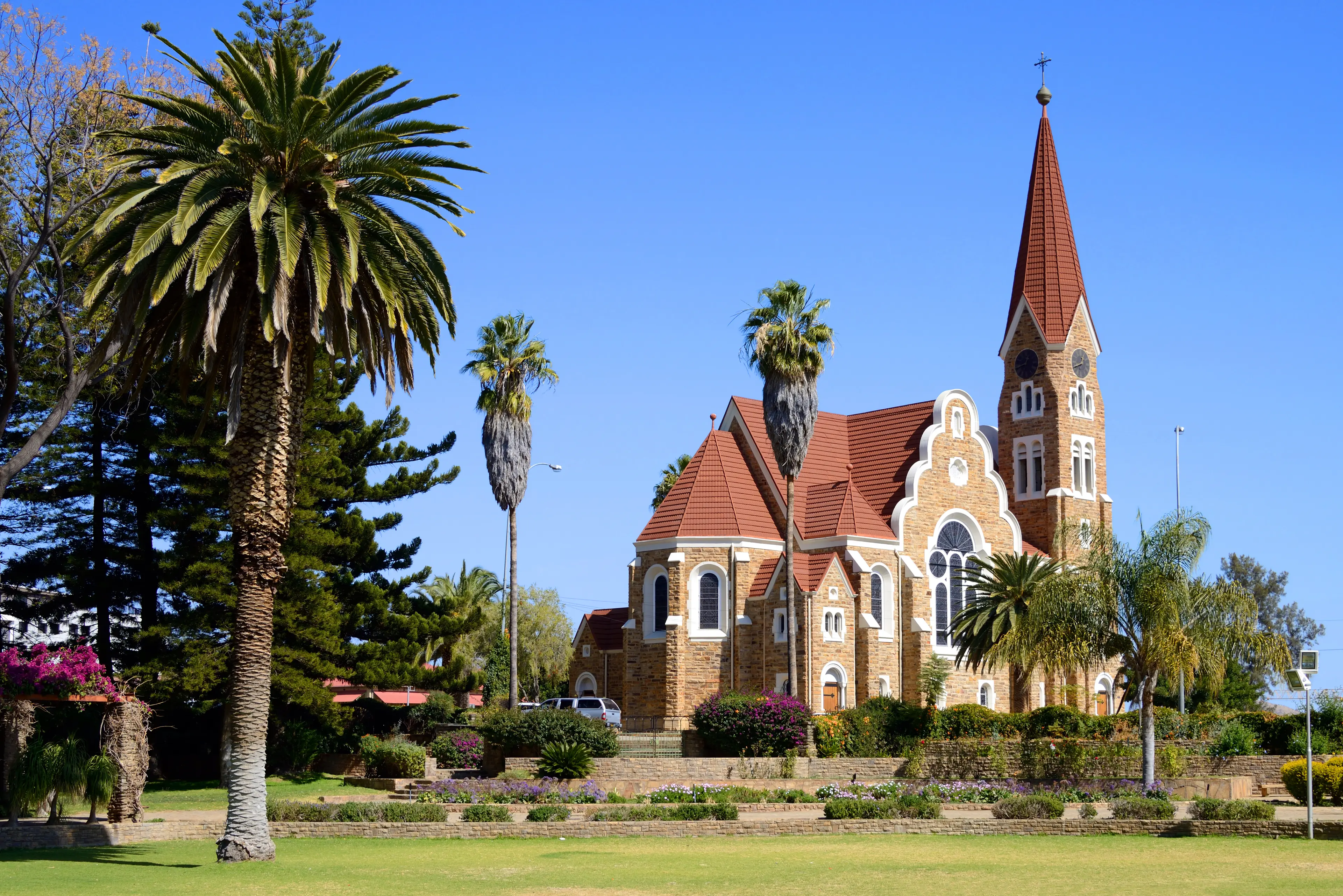
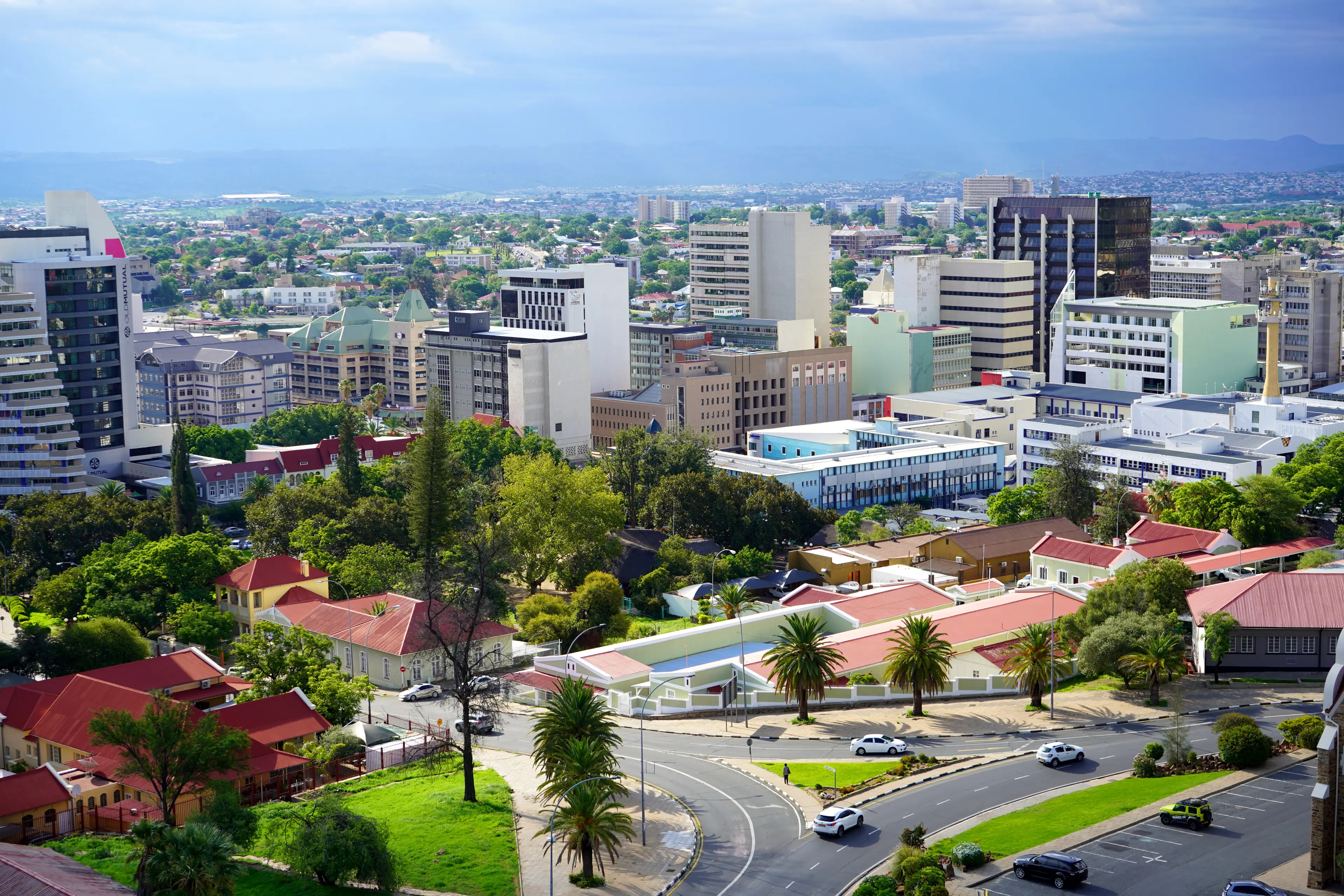
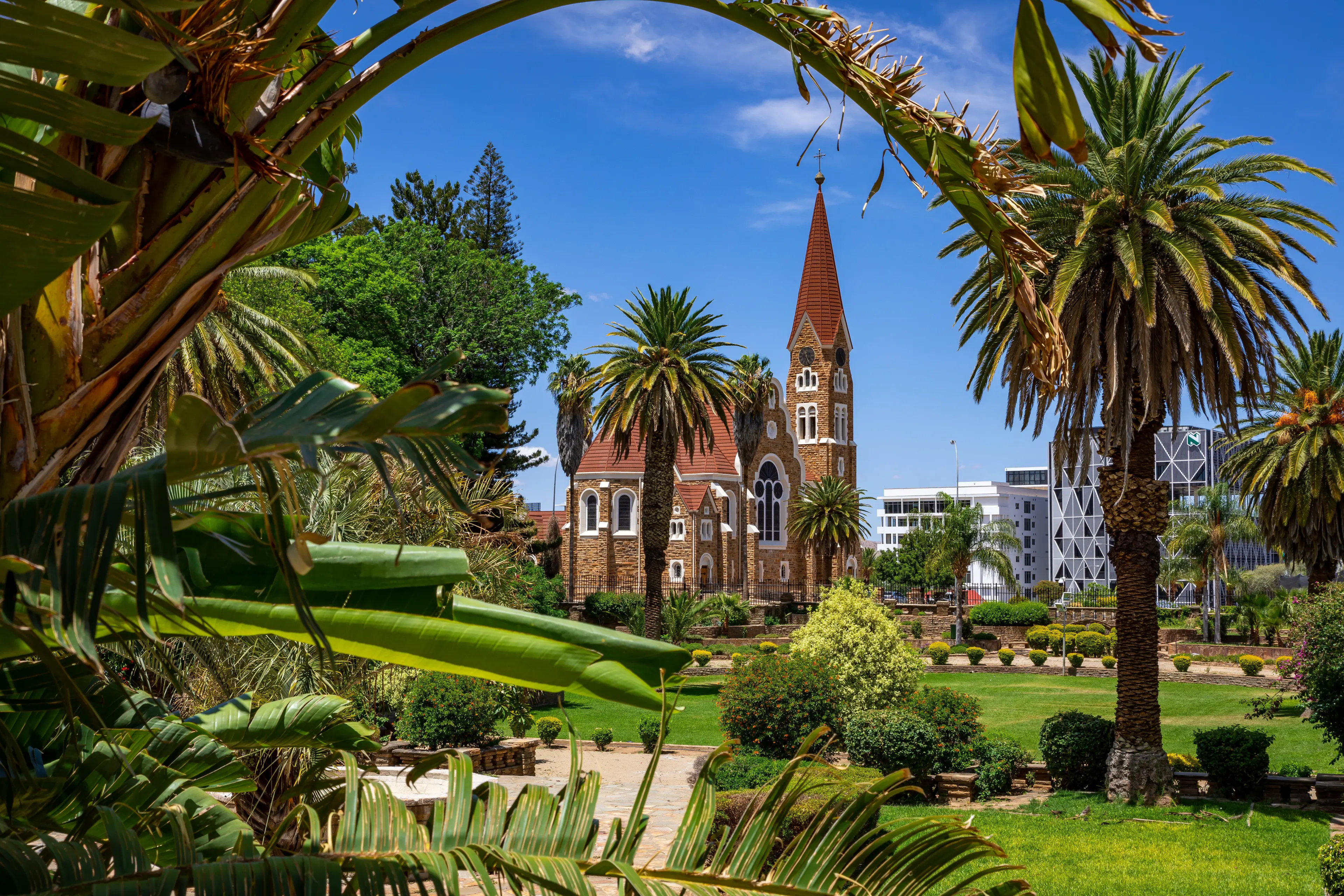
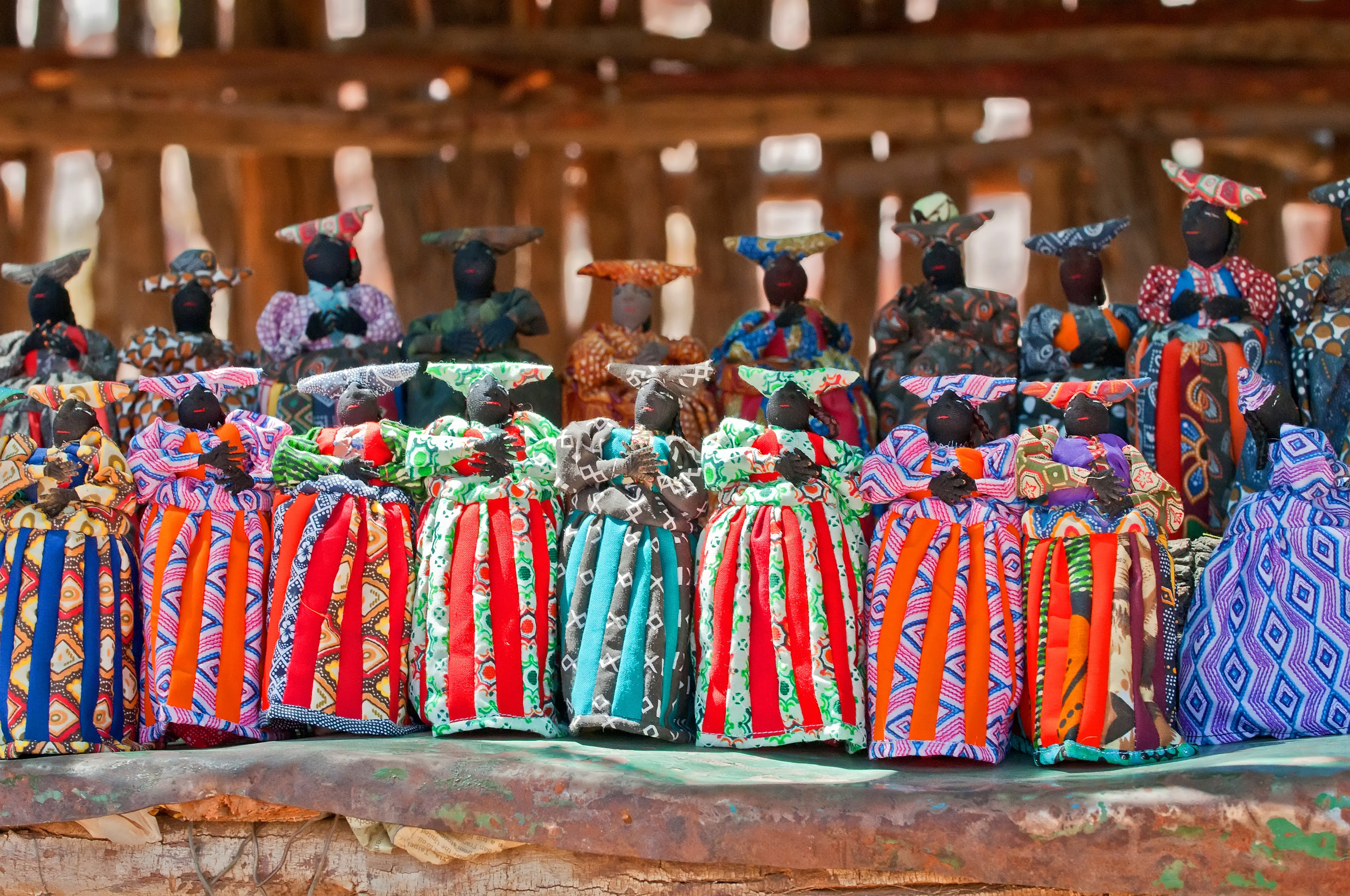
About Windhoek, Namibia
Welcome to Windhoek, the capital and largest city of Namibia, nestled in the heart of the country. This city is a melting pot of cultures and a fusion of modern and colonial architectural styles. Visit the iconic Christuskirche, a German Lutheran church, and the Independence Memorial Museum for a glimpse into Namibia's history. Explore the bustling Namibia Craft Centre for local arts and crafts. Windhoek is also the gateway to spectacular Namibian landscapes, including the Namib Desert and Etosha National Park. Enjoy a safari, witness the majestic wildlife, or marvel at the stunning sunsets. Windhoek offers a unique blend of urban sophistication and rural charm, making it a must-visit destination for any traveler.
2-Day Itinerary
Day 2
Monuments, Markets, and Nightlife in Windhoek
Morning
Start your second day with a visit to the Heroes' Acre monument. This impressive structure is a tribute to those who fought for Namibia's independence.
Lunch
For lunch, try some street food in the city center. There are many vendors selling a variety of delicious and affordable dishes.
Afternoon
Spend your afternoon exploring the local markets. This is a great opportunity to buy souvenirs and experience the local culture.
Dinner
For dinner, try a local seafood restaurant. The fish in Namibia is fresh and delicious, and the seafood dishes are a must-try.
Evening
End your day with a visit to a local nightclub. The nightlife in Windhoek is lively and fun, and it's a great way to experience the local culture.
Attractions in Itinerary (3)
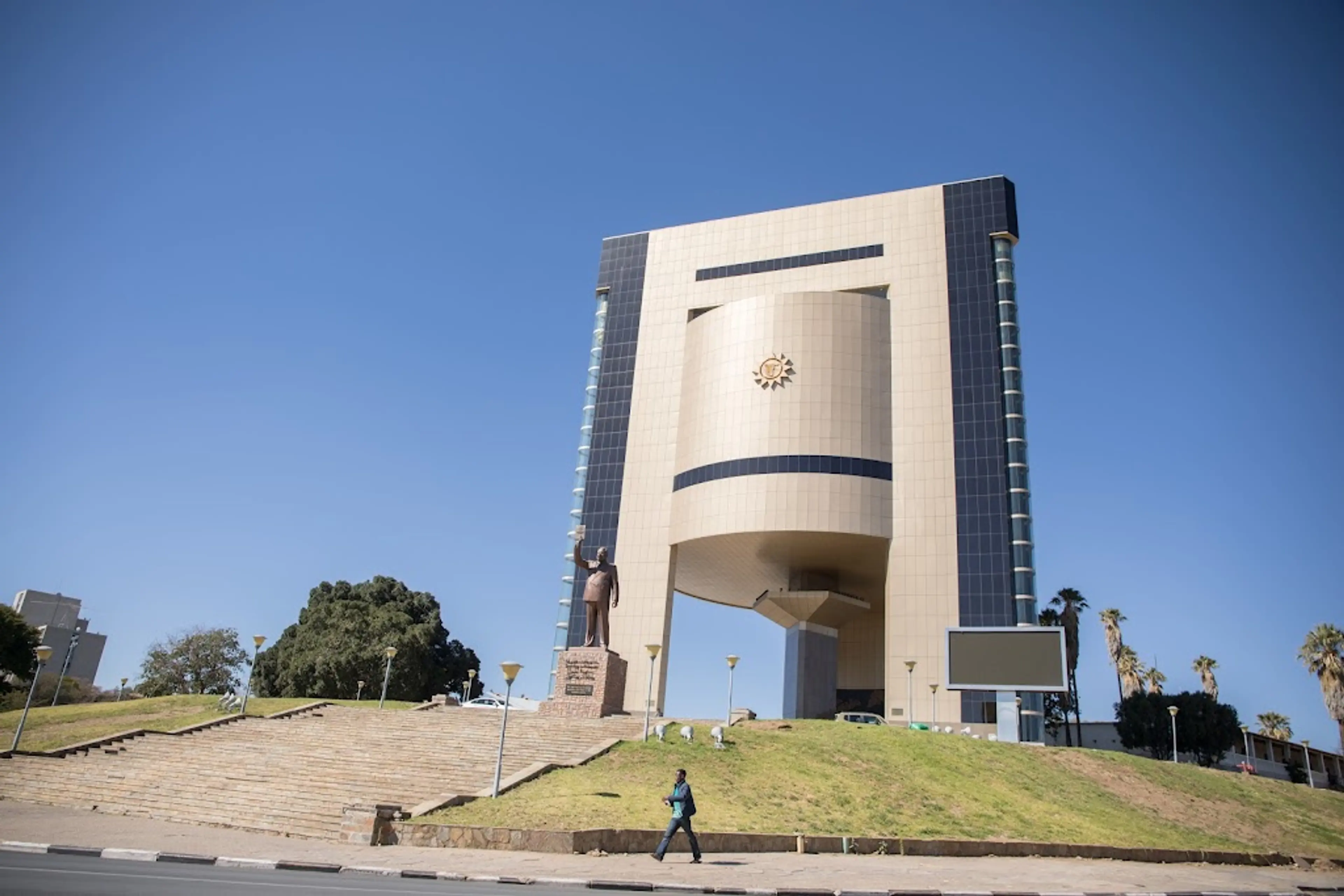
1National Museum of Namibia
Namibia's largest and most comprehensive museum, offering exhibits on archaeology, art, and natural history.
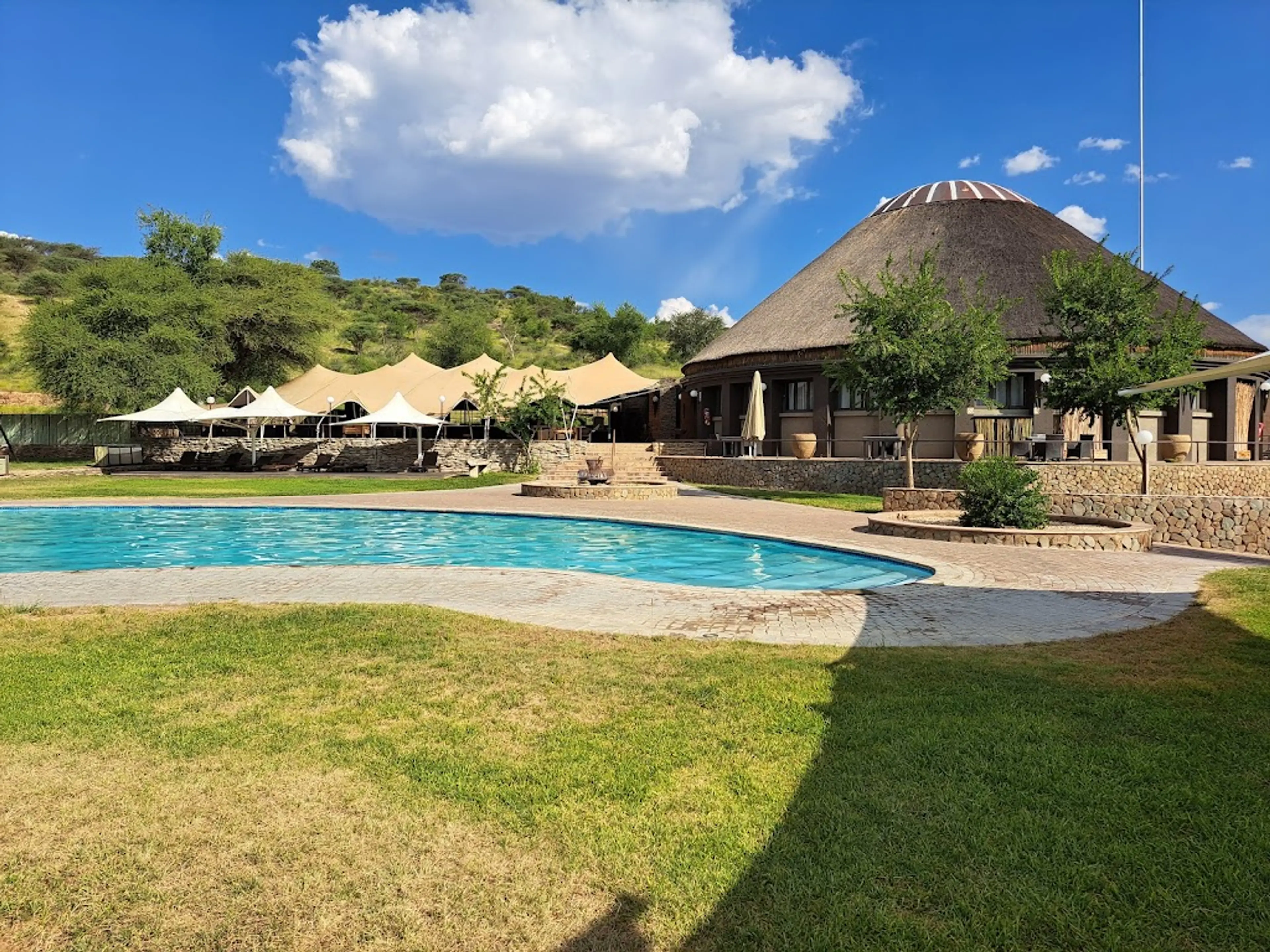
2Daan Viljoen Game Reserve
A game reserve located just outside the city, offering wildlife viewing, hiking trails, and picnic spots.
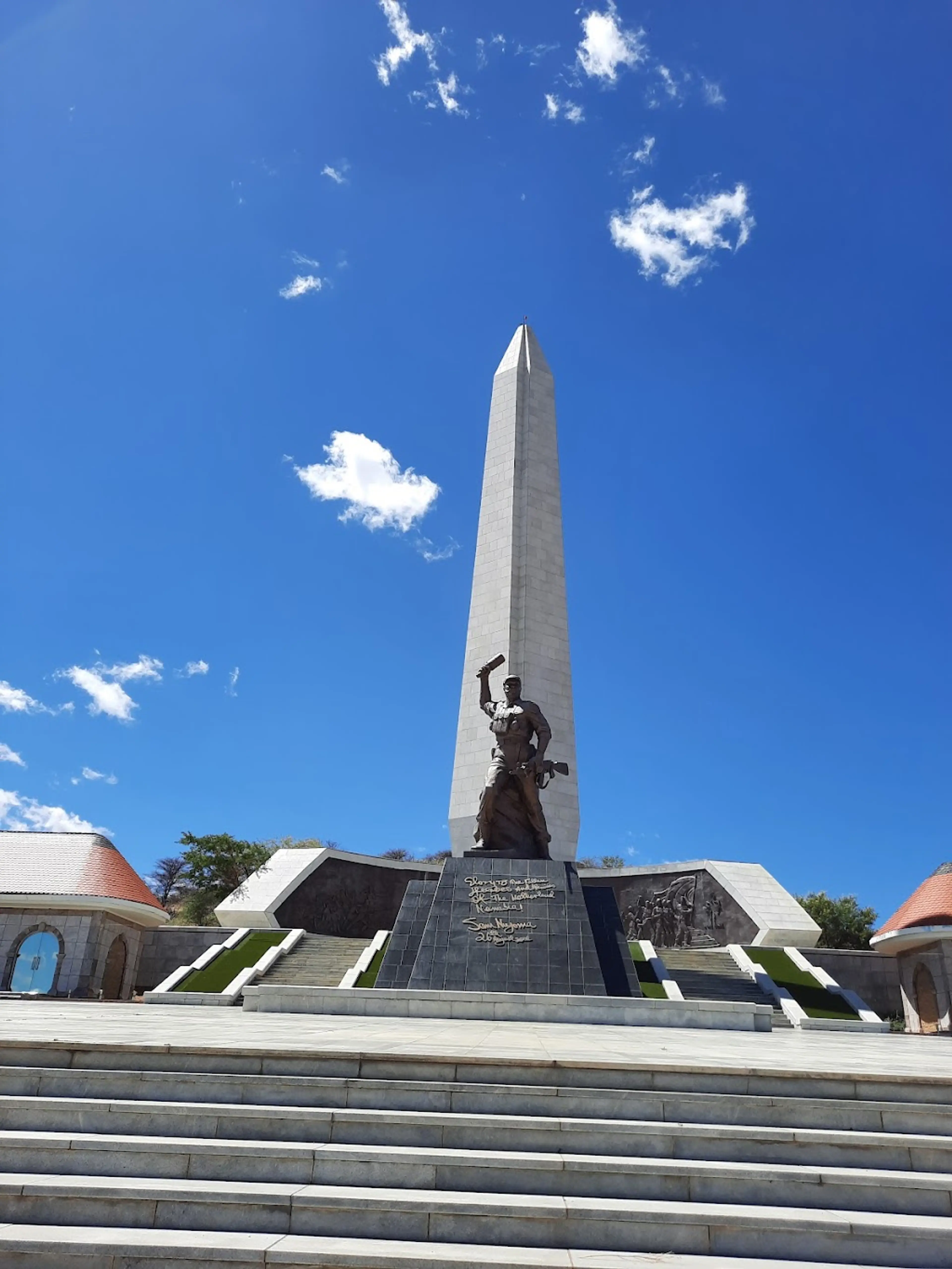
3Heroes' Acre
A national monument dedicated to the heroes and heroines of Namibia's liberation struggle, featuring a statue of the Unknown Soldier.
Local Food and Drinks (12)
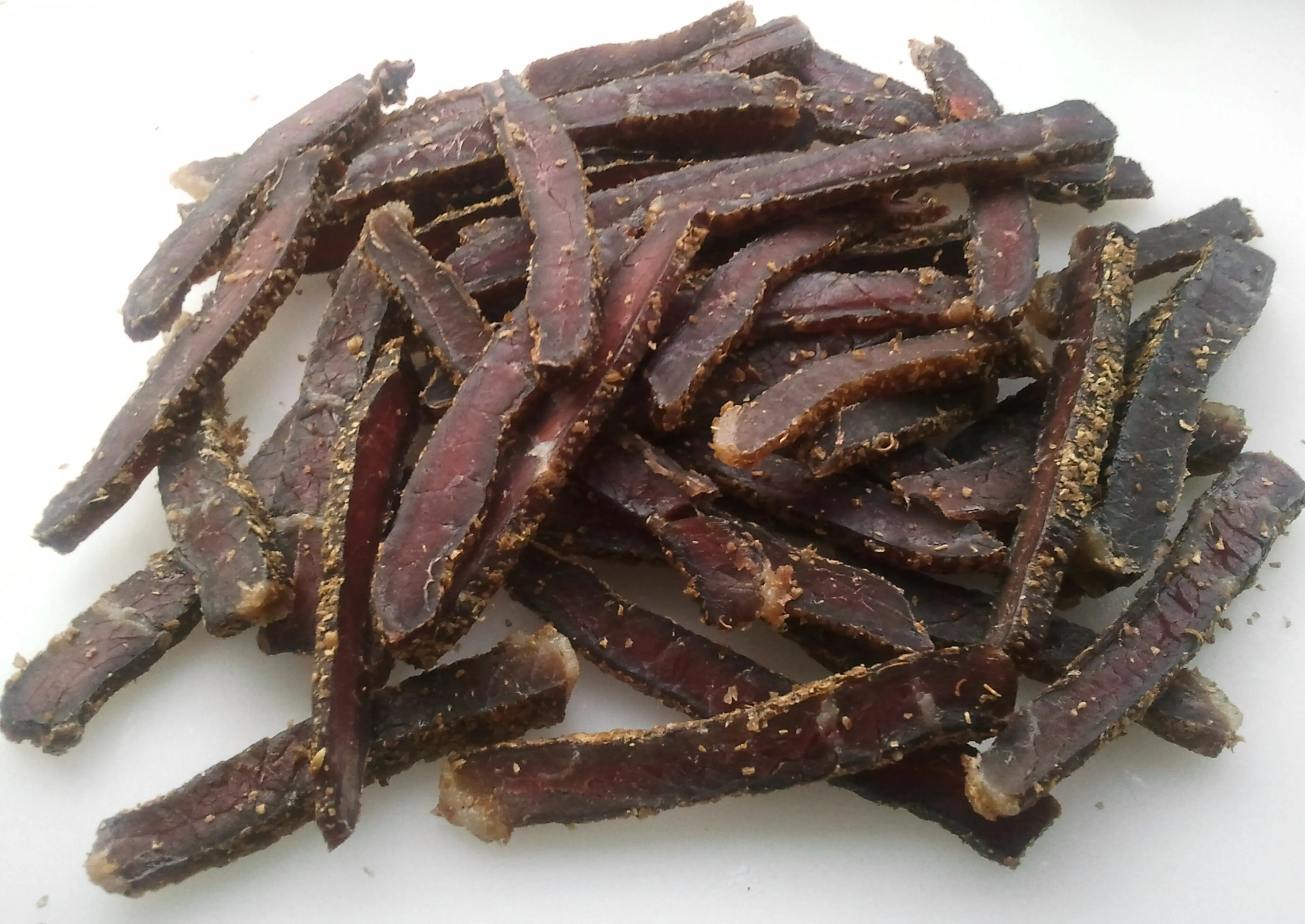
Biltong
Biltong is a popular snack in Namibia, made from cured and dried meat, similar to beef jerky. It's a must-try for any meat lover visiting Windhoek.
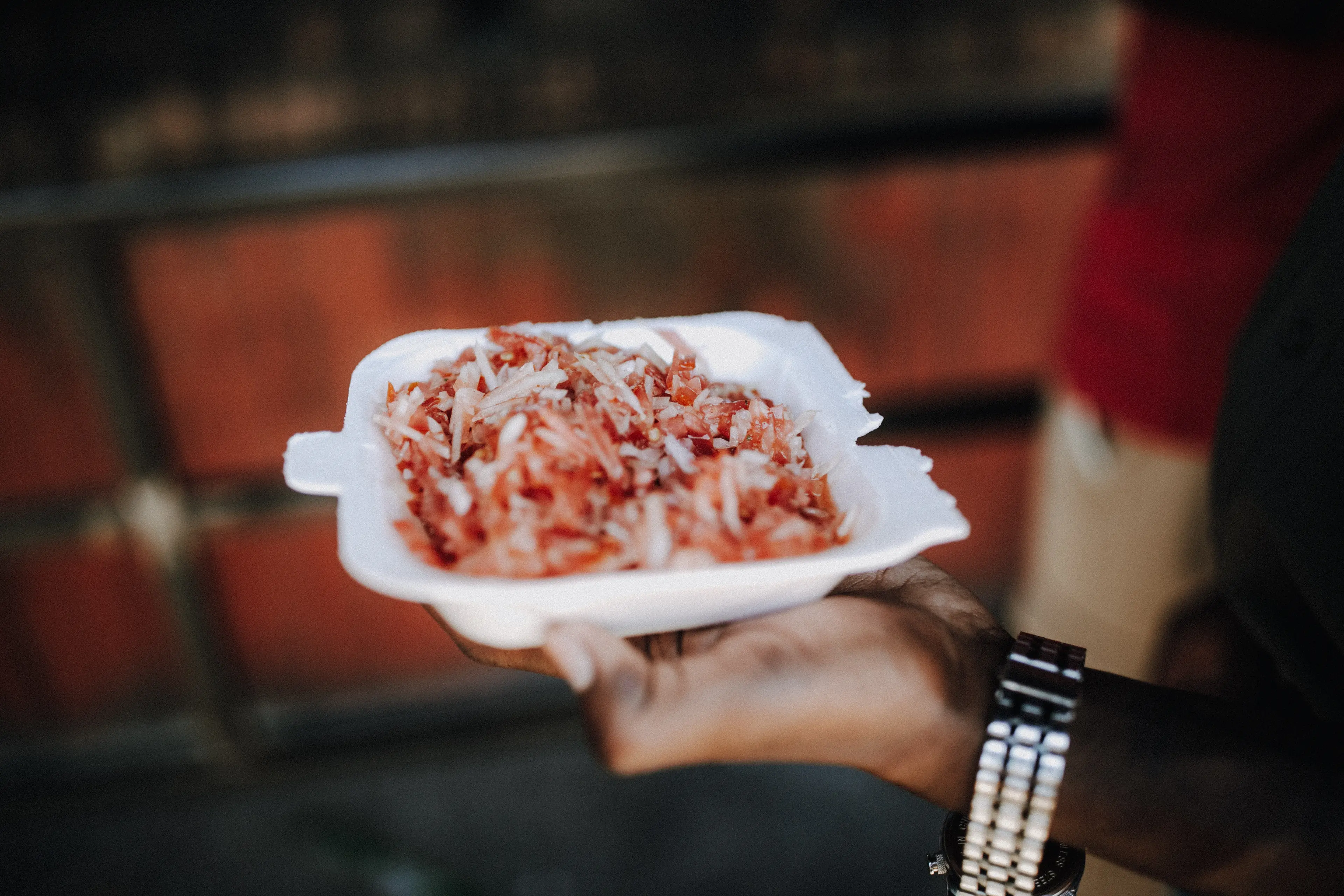
Kapana
Kapana is a popular street food in Windhoek. It consists of grilled meat, usually beef or chicken, served with a spicy sauce and bread.
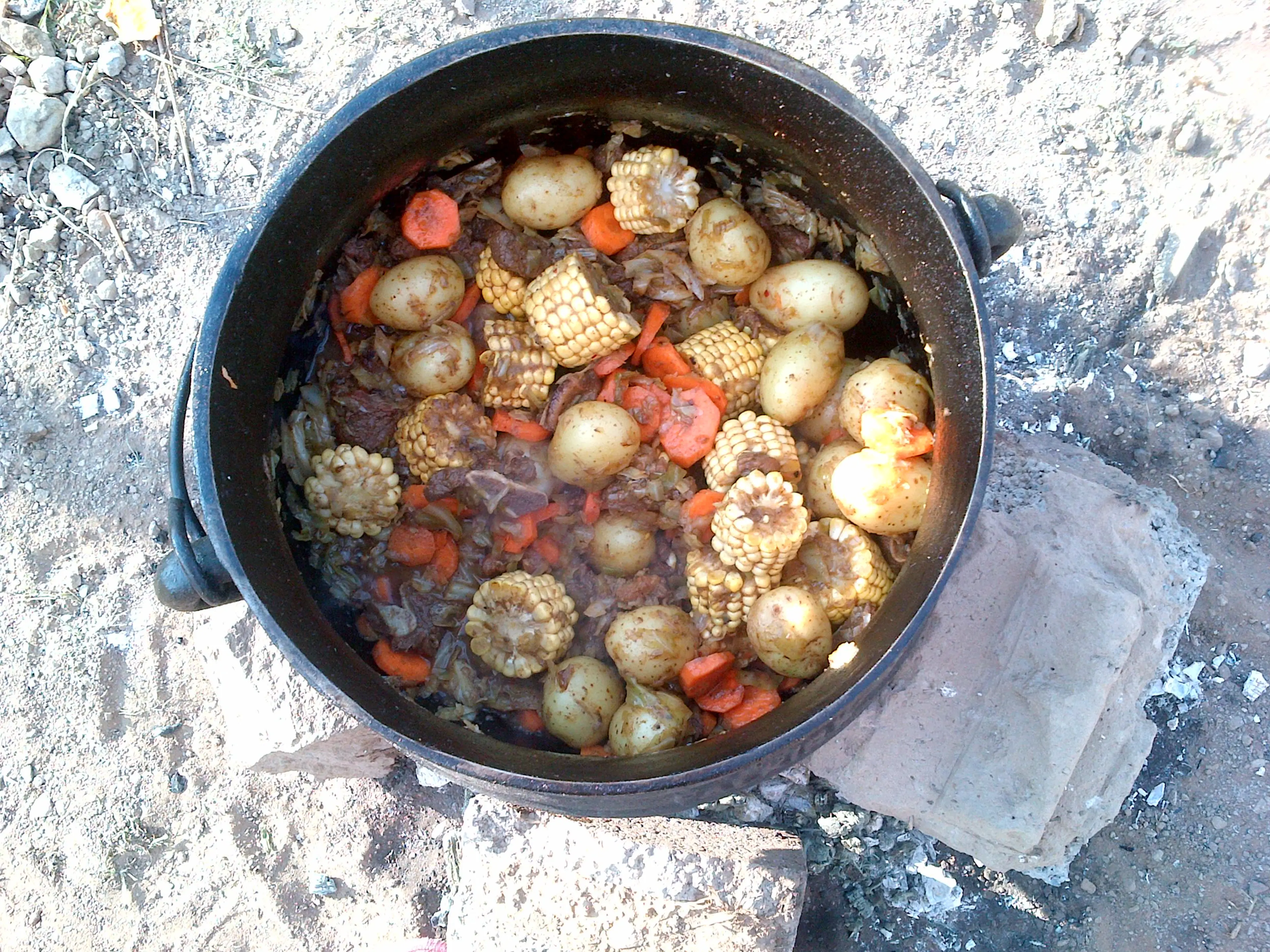
Potjiekos
Potjiekos is a traditional Namibian stew cooked in a three-legged pot over an open fire. It typically includes meat, vegetables, and sometimes even seafood.

Boerewors
Boerewors is a type of sausage popular in Namibia. It's made from a mixture of beef and spices, and is often grilled on a barbecue.
Braai
Braai is a Namibian barbecue, where meat is cooked over an open fire. It's a social event as much as a meal, and is a staple of Namibian cuisine.

Mopane Worms
Mopane Worms are a delicacy in Namibia. These caterpillars are harvested from the Mopane tree, cooked and often dried for preservation. They are rich in protein and have a unique taste.
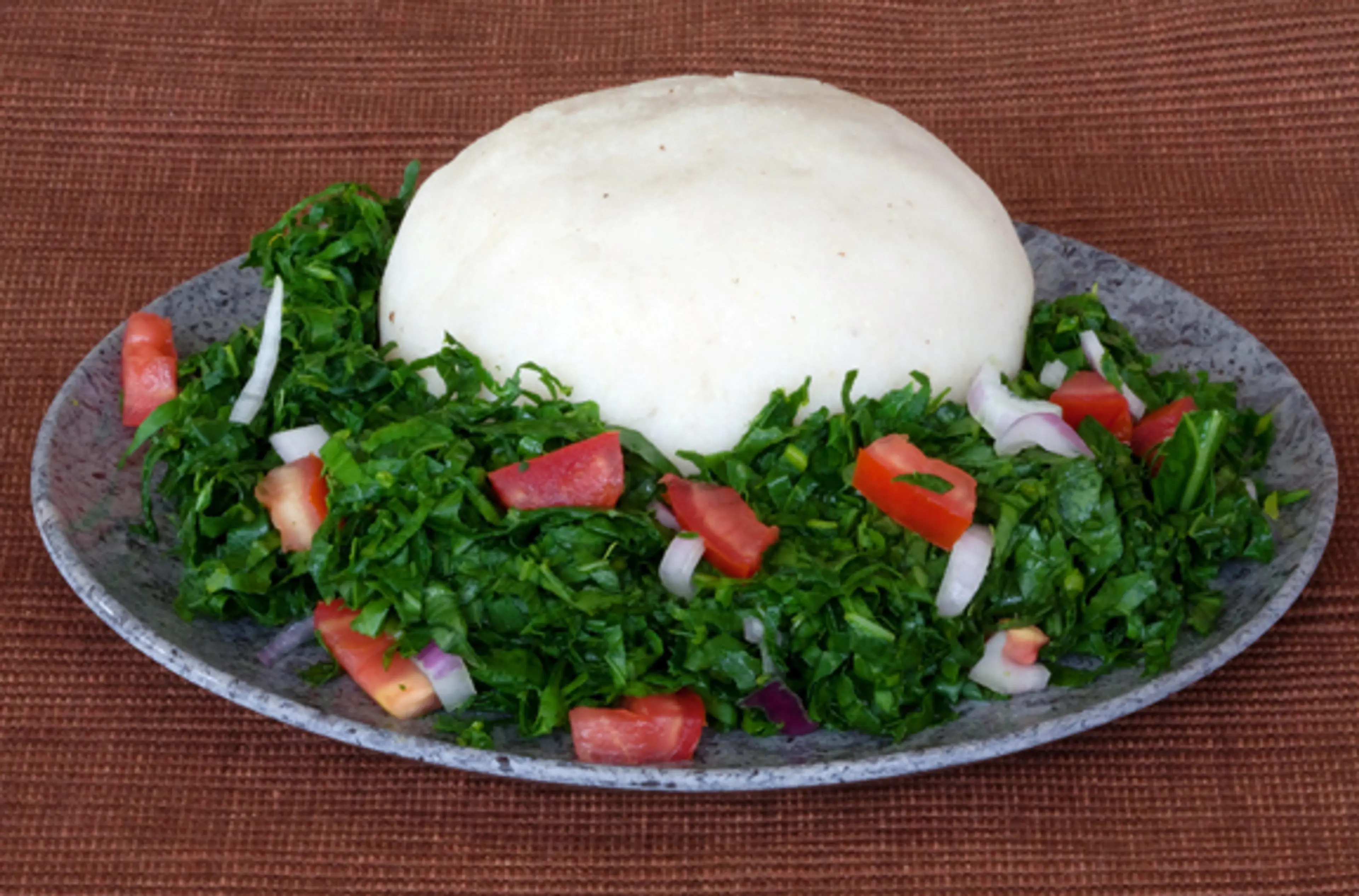
Oshifima
Oshifima, or mahangu porridge, is a staple food in Namibia. It's made from pearl millet and is often served with meat or vegetable stew.

Oshikundu
Oshikundu is a traditional Namibian drink made from fermented millet. It's both refreshing and nutritious, and is often enjoyed at social gatherings.

Game Meat
Namibia is known for its game meat, including kudu, oryx, and springbok. These meats are often served grilled or in stews.

Fat Cakes
Fat Cakes, or 'vetkoek', are a popular snack in Namibia. They are deep-fried dough balls, often filled with mince or jam.
Efundja
Efundja is a traditional Namibian dish made from fish, tomatoes, onions, and chili. It's a popular dish during the rainy season when fish are plentiful.

Tafel Lager
Tafel Lager is a popular Namibian beer. It's light and refreshing, making it the perfect drink to enjoy in the warm Namibian climate.
Best time to visit
The best time to visit Windhoek, Namibia is during the cooler months from May to October. During this period, the weather is pleasant, making it ideal for sightseeing and wildlife viewing. The skies are clear, providing excellent conditions for photography. Additionally, this is the dry season, so animals tend to congregate around water sources, making them easier to spot. However, if you're interested in bird watching, the rainy season from November to April is when migratory birds are present.
How to get around
Car Rental
Renting a car is a popular option for getting around Windhoek. There are several car rental companies available at the airport and in the city. This gives you the freedom to explore the city and the surrounding areas at your own pace. Remember to drive on the left side of the road in Namibia.
Taxi
Taxis are a common way to get around in Windhoek. They are not metered, so it's important to negotiate the fare before starting your journey. Taxis can be hailed on the street or booked in advance.
City Bus
The City of Windhoek operates a public bus service that covers most parts of the city. It's an affordable way to get around, but it may not be as convenient as other options due to limited service hours and routes.
Ridesharing
Ridesharing services, such as Uber, are not currently available in Windhoek. However, there are local apps like LEFA that operate similarly, connecting passengers with licensed taxi drivers.
Bicycle
Windhoek is a bike-friendly city with several bike rental shops. It's a great way to explore the city, especially the downtown area. However, keep in mind that Windhoek is hilly and can be hot during the day.
Walk
Walking is a good option for short distances, especially in the city center where attractions are close to each other. However, it's advisable to avoid walking alone at night.
Guided Tour
There are several tour operators in Windhoek offering guided tours of the city and its surroundings. This is a great way to learn about the history and culture of the area without having to navigate on your own.
Important information
Currency NAD
Time zoneUTC+1
Driving sideLeft
Emergency phoneAmbulance: 2032276; Fire: 2032270; Police: 1011
Drinking waterYes, but some opt for bottled water
Power sockets
Voltage220 V
Things to know about Windhoek, Namibia as a first time visitor
1
Windhoek is the capital and largest city of Namibia.
2
The official language is English, but Afrikaans and German are also widely spoken.
3
The local currency is the Namibian Dollar (NAD), but the South African Rand is also accepted.
4
Credit cards are widely accepted in Windhoek, but it's always a good idea to carry some cash for smaller establishments or street vendors.
5
Windhoek is generally safe for tourists, but like any city, it's important to be aware of your surroundings and keep your belongings secure.
6
The city has a semi-arid climate, with hot summers (December to April) and mild winters (May to September). Average summer temperatures range from 20°C to 34°C (68°F to 93°F), while winter temperatures range from 7°C to 20°C (45°F to 68°F).
7
Tipping is customary in Namibia. A 10% tip is standard for restaurants, while for taxi drivers, rounding up the fare is common.
8
Public transportation in Windhoek includes taxis and city buses. However, taxis are the most common mode of transport for tourists.
9
Driving is on the left-hand side of the road in Namibia.
10
It's recommended to get vaccinated for Hepatitis A and Typhoid before traveling to Windhoek.
11
Tap water in Windhoek is generally safe to drink, but bottled water is widely available.
12
The standard voltage in Namibia is 220V, and the standard frequency is 50Hz. The power plugs and sockets are of type D and M.
13
Windhoek is in the Central Africa Time Zone (CAT), which is 2 hours ahead of Coordinated Universal Time (UTC+2).
14
Namibia is known for its wildlife, so consider packing binoculars and a good camera.
15
Windhoek has a mix of African and German influences, which is reflected in its architecture and food.
16
The city has a number of shopping malls where you can buy traditional Namibian crafts, jewelry, and other souvenirs.
17
Internet access is widely available in Windhoek, with many hotels, restaurants, and cafes offering free Wi-Fi.
18
Namibia's emergency number is 10111 for police and 2032276 for ambulance services.
19
Namibia has a high rate of HIV/AIDS. Always take precautions if engaging in activities that could expose you to the virus.
20
Sunscreen is a must as the sun can be quite harsh, especially during the summer months.
Packing List
Clothing
Lightweight clothing
Underwear
Socks
Sleepwear
Swimwear
Comfortable walking shoes
Hat for sun protection
Sunglasses
Light jacket or sweater for cooler evenings
Toiletries
Travel-sized shampoo and conditioner
Body wash or soap
Toothbrush and toothpaste
Deodorant
Razor and shaving cream
Sunscreen
Lip balm with SPF
Insect repellent
First-aid kit with band-aids, antiseptic wipes, and tweezers
Prescription medications
Hand sanitizer
Travel documents and essentials
Passport
Driver's license or other ID
Credit and debit cards
Cash in local currency
Travel insurance documents
Hotel and/or car rental reservations
Emergency contacts and important addresses
Maps and guidebooks
Electronics and gadgets
Smartphone
Charger for smartphone
Universal travel adapter
Camera
Charger for camera
Headphones
Portable power bank
Miscellaneous items
Reusable water bottle
Snacks
Travel pillow and blanket
Books or e-books for entertainment
Travel-sized laundry detergent
Ziplock bags for organization
Tissues
Umbrella or rain poncho
Weather Conditions
When planning a trip to Windhoek, Namibia, it's important to consider the city's semi-arid climate. The weather is generally hot during the day and cool at night. The hottest months are December, January, and February, where temperatures can reach up to 86°F (30°C) during the day. However, nights can be quite cool, with temperatures dropping to around 60°F (15°C). It's advisable to pack light clothing for the day and warmer layers for the evenings. The coolest months are June, July, and August, with daytime temperatures averaging around 68°F (20°C) and nighttime temperatures can drop to a chilly 41°F (5°C). During these months, it's recommended to pack warm clothing, especially for the evenings. Rainfall in Windhoek is quite low and mostly occurs during the summer months from November to February. However, the rain showers are usually brief and won't significantly disrupt your travel plans. It's still a good idea to pack a light raincoat or umbrella just in case. Regardless of when you visit, don't forget to pack sun protection. The sun in Windhoek can be intense due to the city's high altitude and clear skies. Sunscreen, a hat, and sunglasses are essential items to protect yourself from the sun. Lastly, remember to stay hydrated. The dry climate can lead to dehydration, especially during the hotter months. Always carry a bottle of water with you when exploring the city. Enjoy your trip to Windhoek, Namibia!
| Month | Hi / Lo (°C) | Weather Overview |
|---|---|---|
January | 33° / 18° | January is one of the hottest months in Windhoek, with average temperatures ranging from 18°C to 33°C. It's also the wettest month, so pack a raincoat. |
February | 32° / 18° | February is still quite hot, with temperatures similar to January. Rainfall is less frequent, but still possible. |
March | 30° / 17° | March sees a slight drop in temperatures, with highs around 30°C. Rain is less likely, but still possible. |
April | 28° / 14° | April is the start of autumn in Windhoek, with cooler temperatures and less rainfall. It's a great time to visit for outdoor activities. |
May | 25° / 10° | May is one of the cooler months in Windhoek, with temperatures dropping to an average low of 10°C. It's a good time to visit if you prefer cooler weather. |
June | 23° / 7° | June is the start of winter in Windhoek, with temperatures dropping to an average low of 7°C. It's the driest month, so you won't need to worry about rain. |
July | 23° / 7° | July is the coldest month in Windhoek, with average temperatures similar to June. It's a good time to visit if you prefer cooler, dry weather. |
August | 26° / 10° | August sees a slight increase in temperatures, with highs around 26°C. It's still quite dry, making it a good time for outdoor activities. |
September | 29° / 13° | September is the start of spring in Windhoek, with temperatures starting to increase. It's a great time to visit for wildlife viewing. |
October | 32° / 16° | October is a hot month in Windhoek, with temperatures reaching up to 32°C. It's the start of the rainy season, so pack a raincoat. |
November | 33° / 17° | November is one of the hottest months in Windhoek, with temperatures similar to January. Rainfall is more frequent, so be prepared. |
December | 33° / 18° | December is a hot and wet month in Windhoek, with temperatures similar to January and February. It's a good time to visit if you don't mind the heat and rain. |
Did you know?
Places near by Windhoek, Namibia

Daan Viljoen Game Reserve
A small game reserve located in the Khomas Hochland hills, offering wildlife viewing and hiking trails.
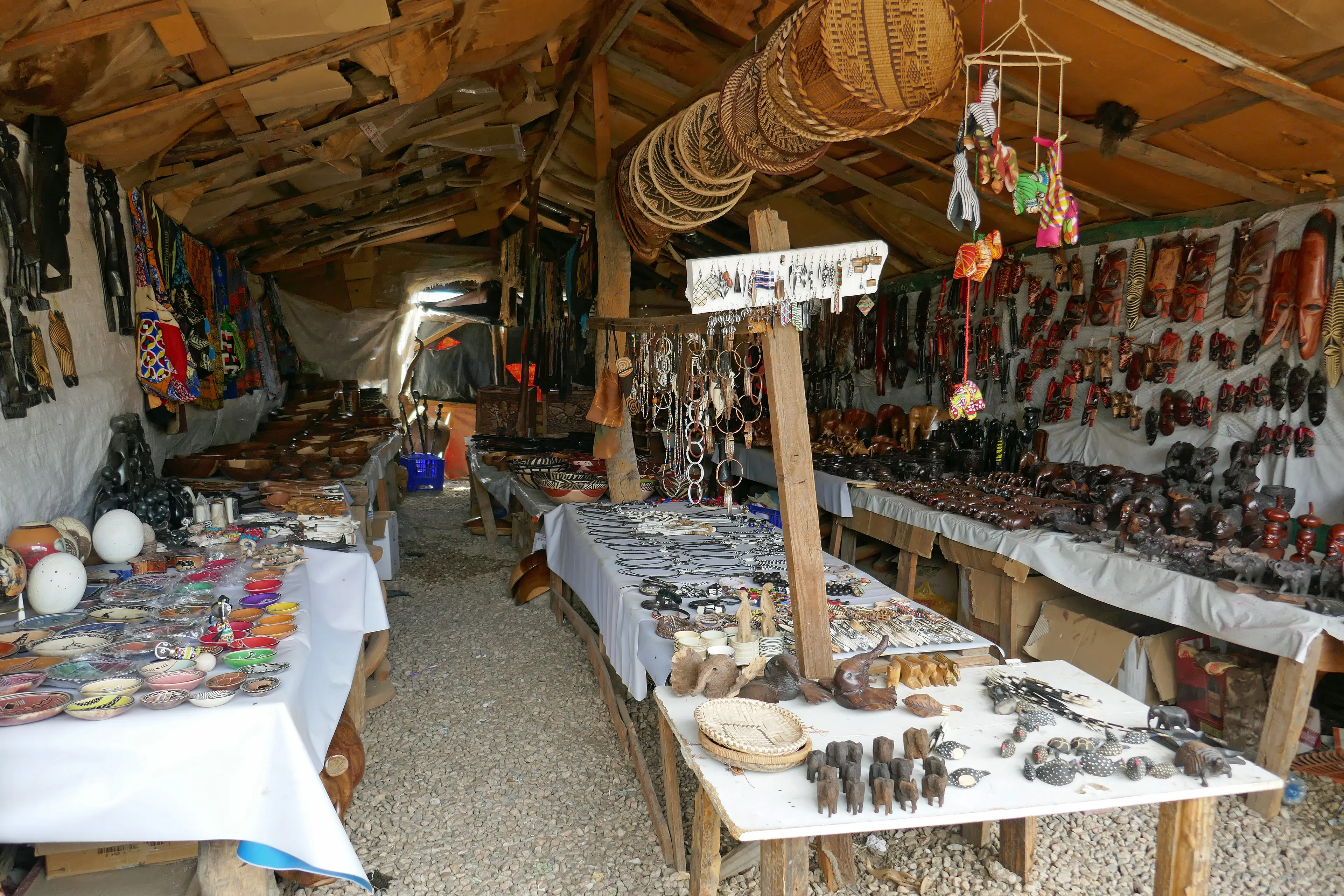
Okahandja
Known as the 'Garden Town of Namibia', Okahandja is famous for its woodcarving market and Herero graves.
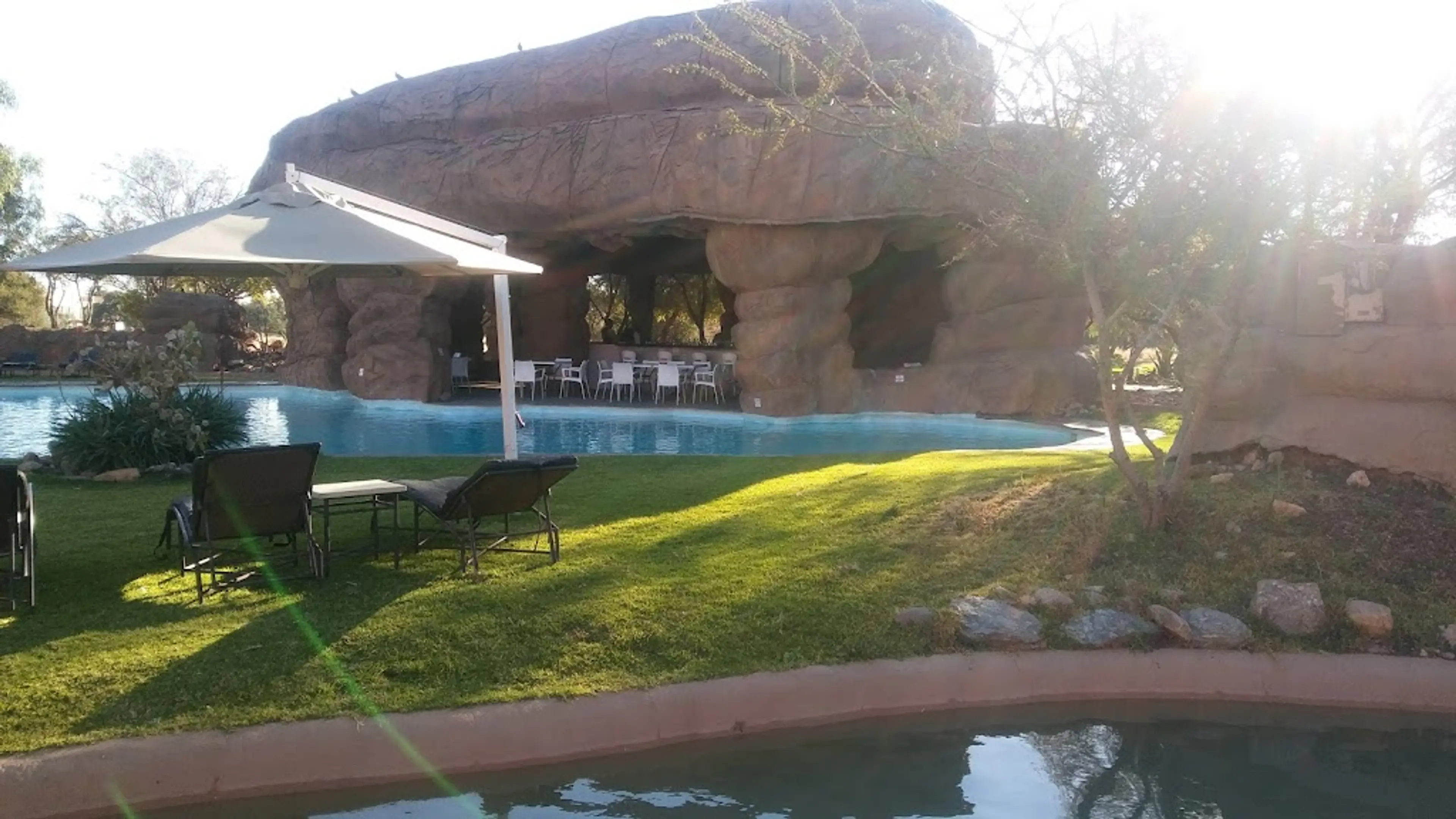
Omeya Golf Club
A world-class golf course set in the tranquil desert scenery, offering a unique golfing experience.
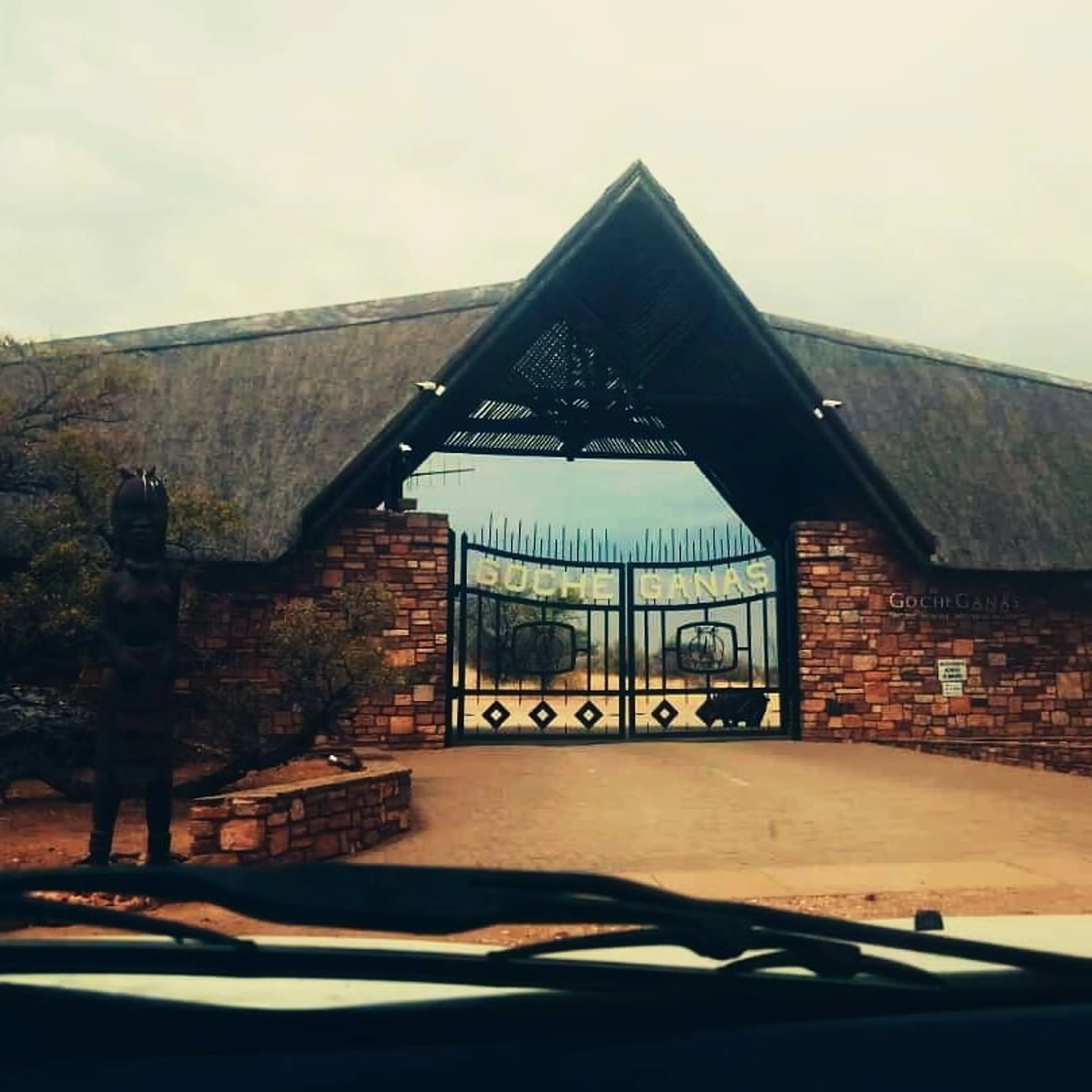
GocheGanas Nature Reserve
A luxury lodge and wellness village that offers wildlife viewing and spa treatments.
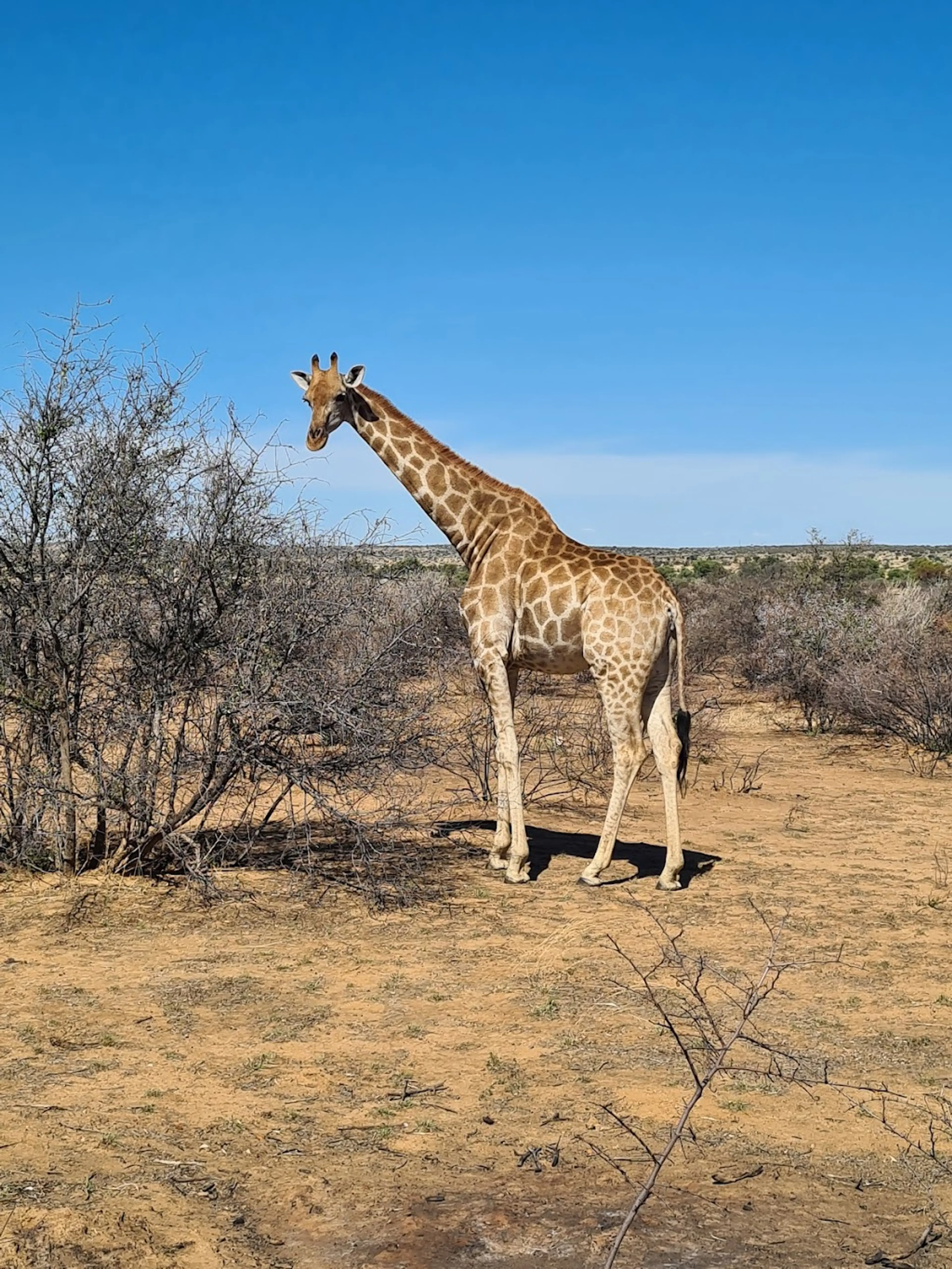
Naankuse Wildlife Sanctuary
A sanctuary for injured and orphaned animals, offering volunteer opportunities and wildlife tours.

Heroes' Acre
A national monument in Namibia dedicated to the country's liberation struggle.
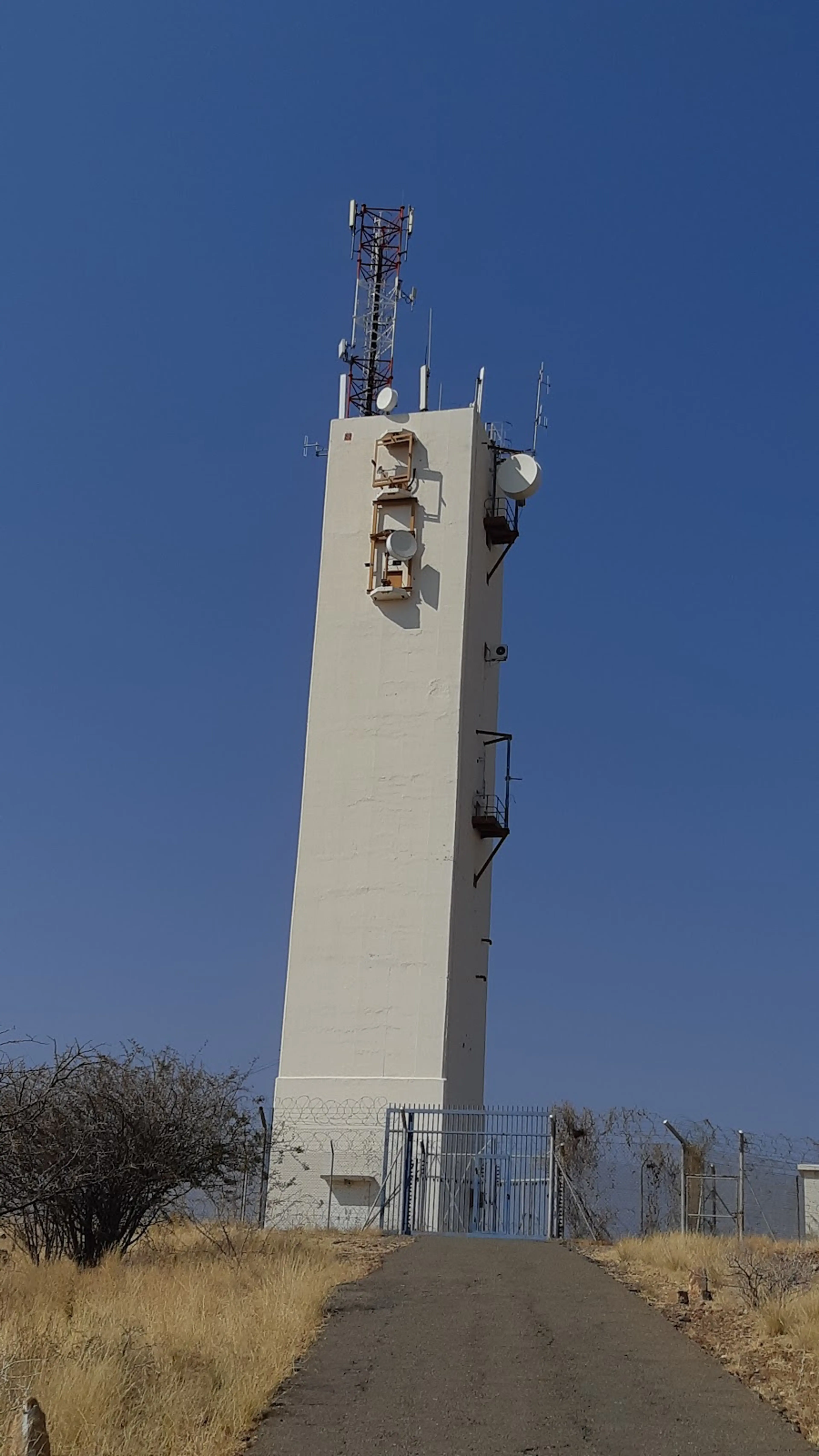
Rehoboth
A town rich in history and culture, known for its hot springs and the Rehoboth Baster community.
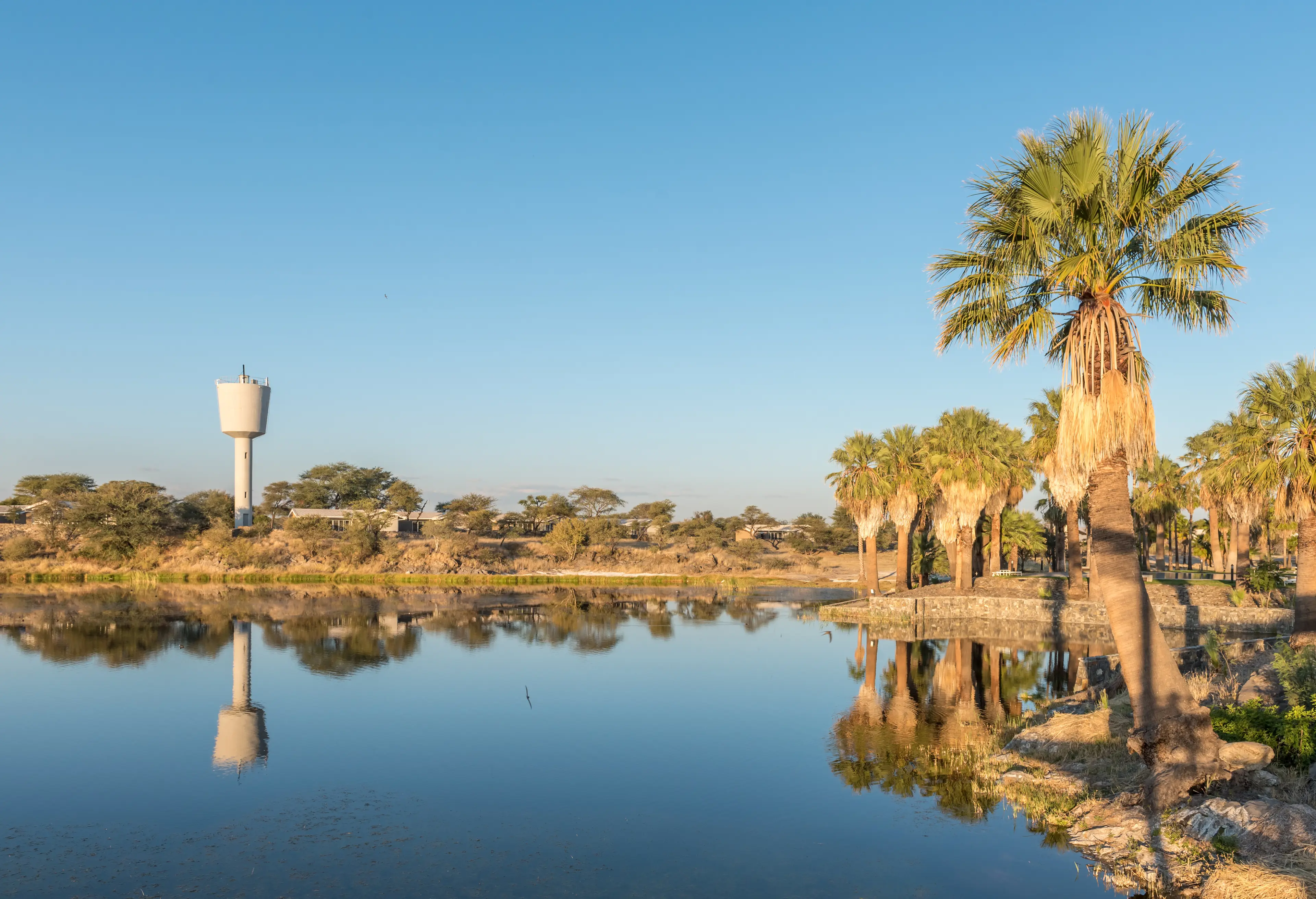
Gross Barmen Hot Springs
A resort offering thermal baths, camping, and wildlife viewing.
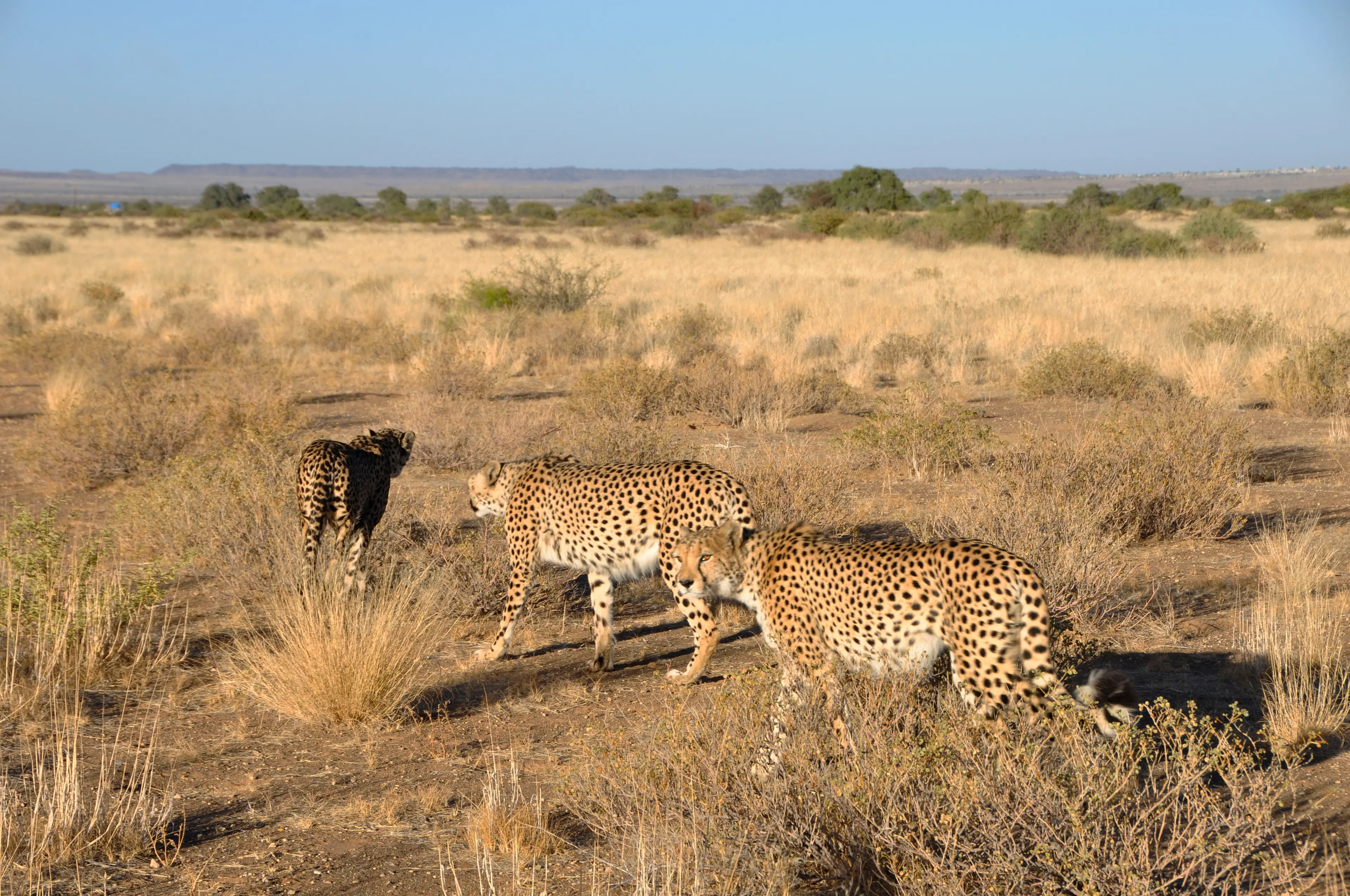
Otjiwarongo
Home to the Cheetah Conservation Fund, an organization dedicated to saving the cheetah in the wild.
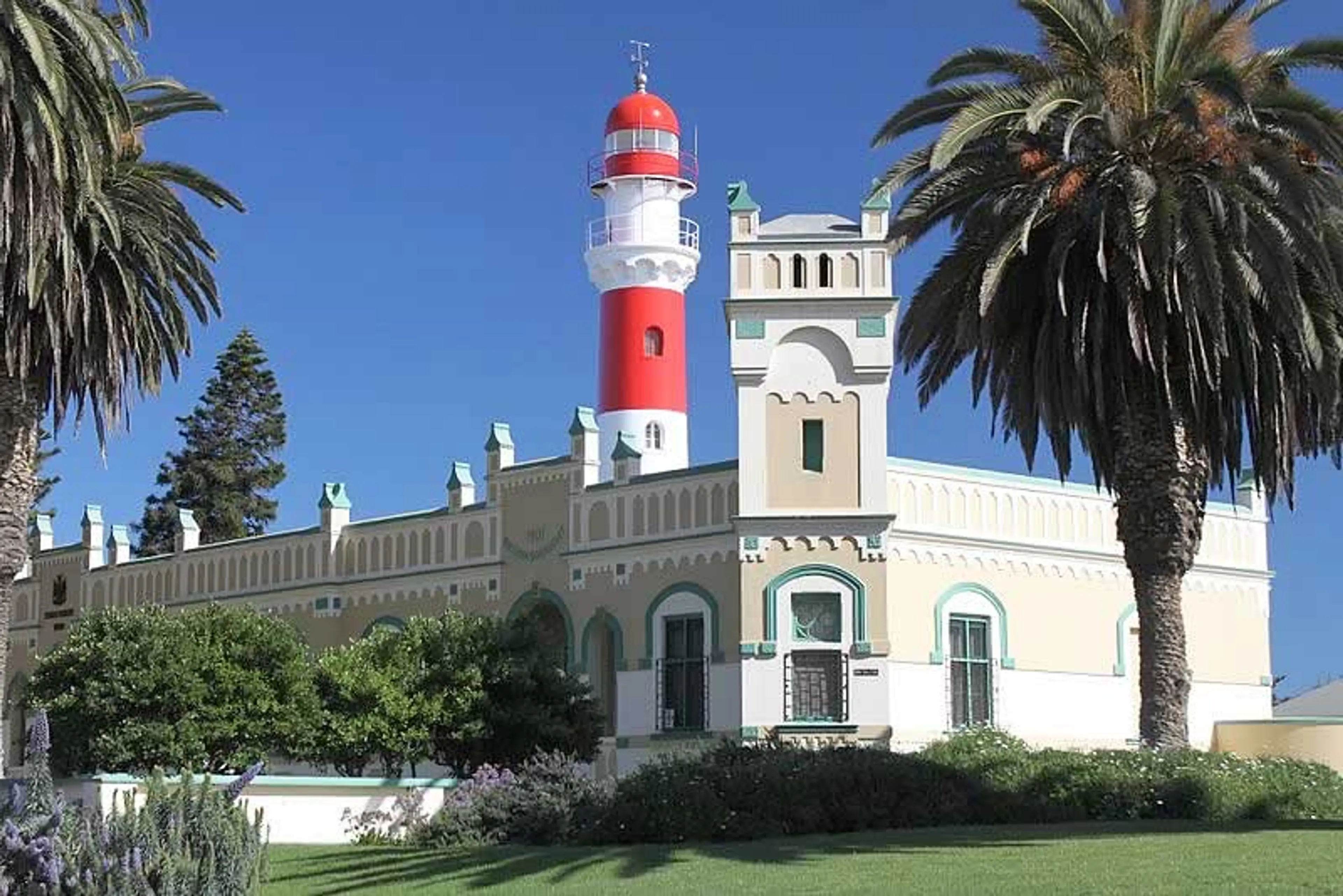
Swakopmund
A coastal city known for its German colonial architecture, adventure activities, and the nearby Namib desert.